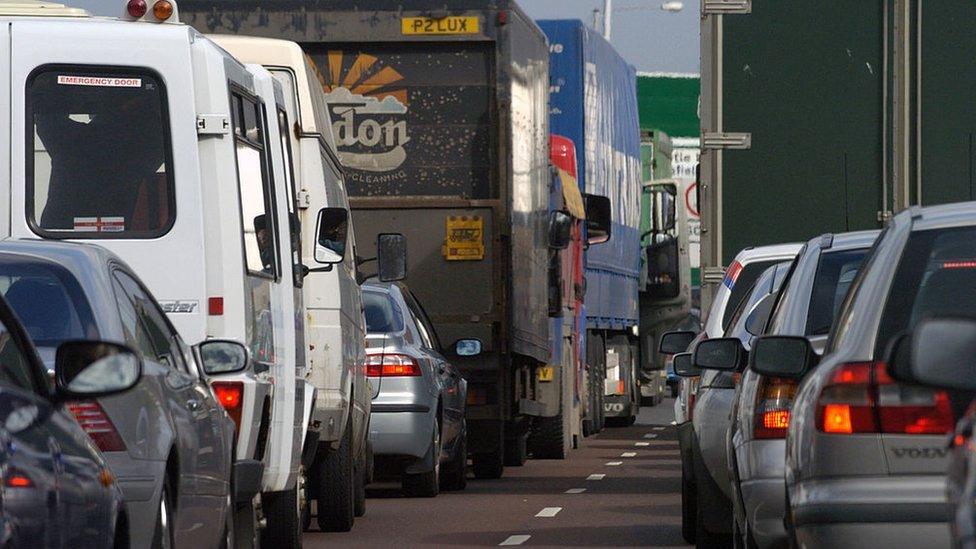Newcastle's clean air zone charges come into force
- Published
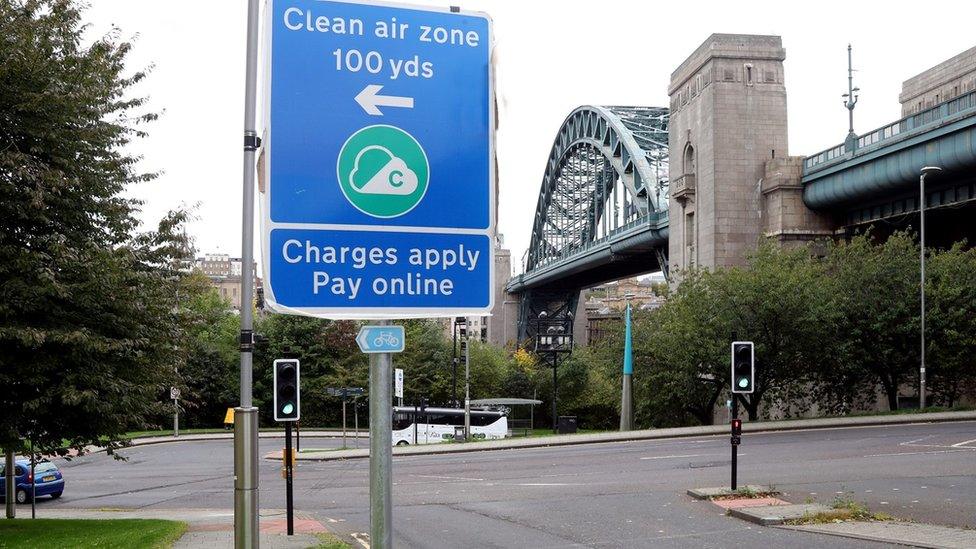
There are signs warning drivers about the charges
Drivers of the worst-polluting lorries, buses and taxis will now be charged to enter Newcastle city centre.
Those who fail to pay to enter the designated Clean Air Zone (CAZ) will be fined.
Taxis, private hire vehicles, buses, coaches and HGVs will be charged between £12.50 and £50 a day.
Newcastle City Council says it had to act after a legal order was issued by government to reduce "illegal levels of air pollution caused by traffic".
The CAZ covers Newcastle city centre and routes over the Tyne, Swing, Redheugh and High Level bridges.
Charges and fines will not apply to private cars, motorbikes or any vehicles that comply with national emissions standards.
First mooted in 2018, the CAZ was intended to be operational in 2021 until the Covid pandemic set it back.
Early plans had considered imposing charges for all cars and introducing tolls on bridges before the public had their say.
In 2019, 19,000 people completed a survey on the proposals - more than responded to a similar consultation in London - and the idea of charging private cars was later dropped.
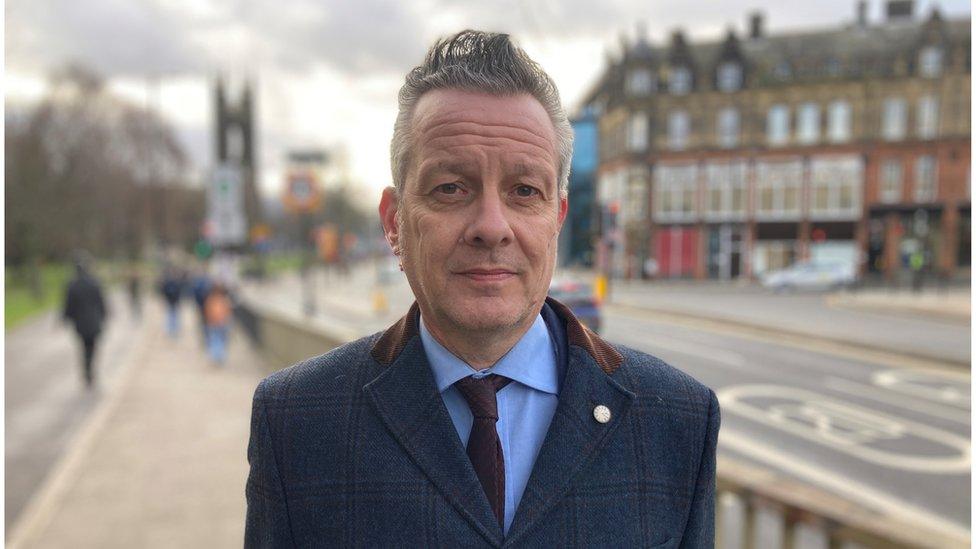
Mr Kemp has denied the CAZ fines will prevent people coming into the centre of Newcastle
Leader of Newcastle City Council Nick Kemp said he appreciated the charges would be unpopular but the authority had no choice.
"Central government says we must impose a CAZ and we're acting on the most polluting vehicles. Private cars are exempt but taxi drivers, HGV's and buses could be liable to pay.
"It's not about preventing people coming into the city, it's really about stopping unnecessary journeys through the city centre and ensuring we have better vehicles providing public service."
Mr Kemp believes the introduction of fines will have an impact on air quality and improve the "quality of life for residents and visitors."

Breakdown of charges
Under the CAZ scheme, the following daily charges will apply for non-compliant vehicles:
Buses, coaches and HGVs - £50
Taxis and private hire vehicles - £12.50
Vans and light goods vehicles - £12.50 (but not until July)

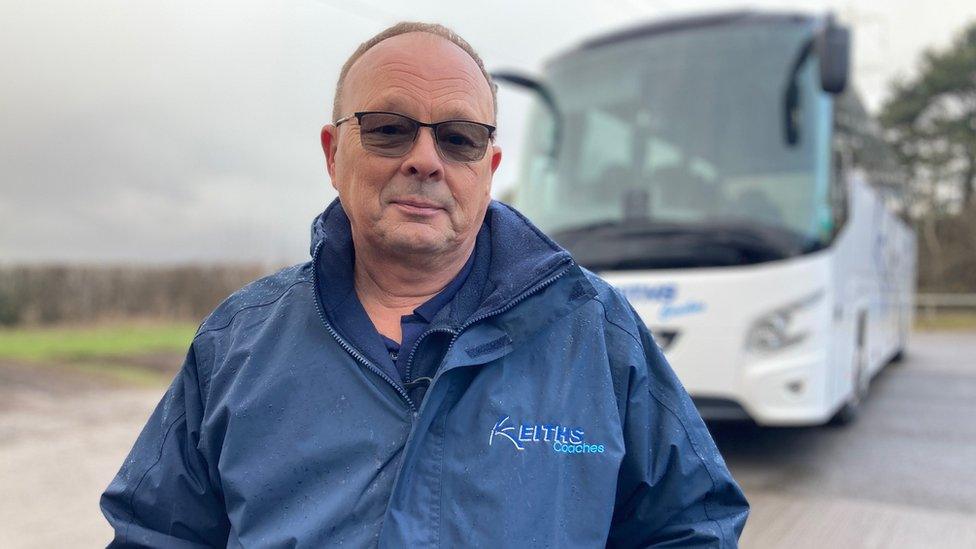
Mr Grimes says he has no option but to pass the fine costs onto his customers
Keith Grimes, whose bus company does school visits to the city's museums, said the grant is of no use to him so he will have to pay the new £50 charge on every trip.
"The £20,000 exhaust system needed to meet the new standards is not available for this sort of coach.
"It has already been adapted to take two classes of schoolchildren out and I think the fine is a cost we've got no choice but to pass onto the customers.
"For a coach like mine it's about an extra £1 per child.
"I think many schools will now reconsider where they are going to," the coach owner said.
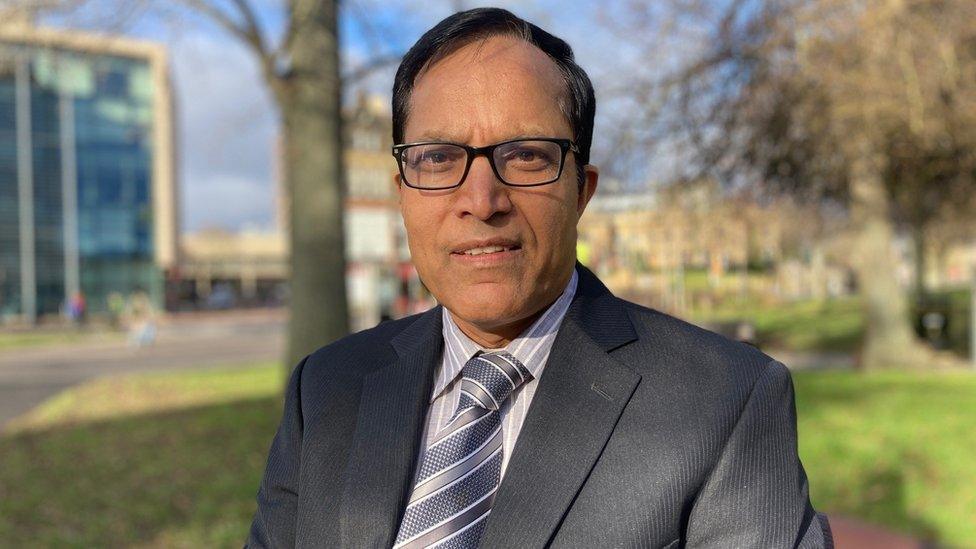
Prof Namdeo says people do not realise air pollution is a "such a big threat"
Anil Namdeo, professor of air quality management at Northumbria University, said air pollution was "one of the biggest public threats in the world" and linked to between 28,000 to 36,000 premature deaths every year in the UK.
He added action had to be taken to protect vulnerable people such as children and the elderly.
"We are on a long journey, clean air is a fundamental right and banning the most polluting vehicles from cities are among the steps to be taken.
"Air pollution is an invisible killer, back in the 1950s we could see the smog in London but times have changed and we're now looking at micro particles which go deep into our lungs."

In the zone
CAZ schemes have also been launched in Bath, Birmingham, Bradford, Bristol and Portsmouth in recent years. Sheffield is due to introduce one next month
They are graded from A to D in terms of the types of vehicles that are liable to charges (with D the most stringent)
The Tyneside CAZ is categorized as a "C class", similar to those in Bath and Bradford
Bradford's scheme was introduced in September and since then £1.85m has been generated
In that time, the council received £943,443 in charges and £909,209 in payments from penalty charge notices
Bradford Council said the money would be ringfenced for projects to reduce harmful emissions and £182,492 of the pot would be paid to government

In Newcastle, income from CAZ will be primarily used to cover the scheme's running costs with leftover money used to improve public transport and cycling and walking schemes.
Charges for non-compliant light goods vehicles and vans will be introduced in July, and while there are no plans to charge private cars Newcastle City Council says "is possible that this could change in the future", depending on the impact of the clean air measures.
It adds any decision to charge cars in future would be subject to further public consultation.

Follow BBC North East & Cumbria on Twitter, external, Facebook, external and Instagram, external. Send your story ideas to northeastandcumbria@bbc.co.uk, external.
- Published18 January 2023
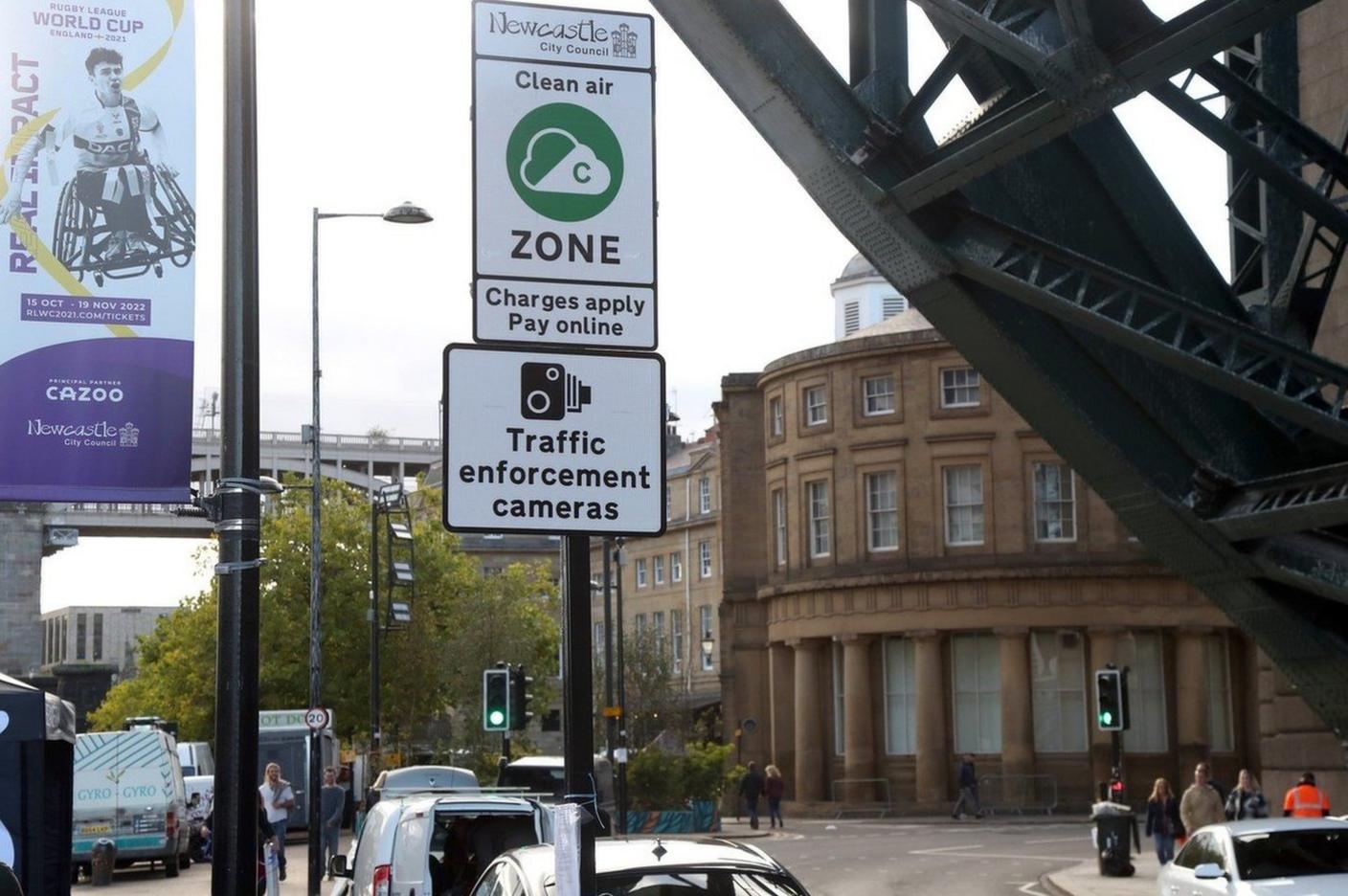
- Published9 January 2023
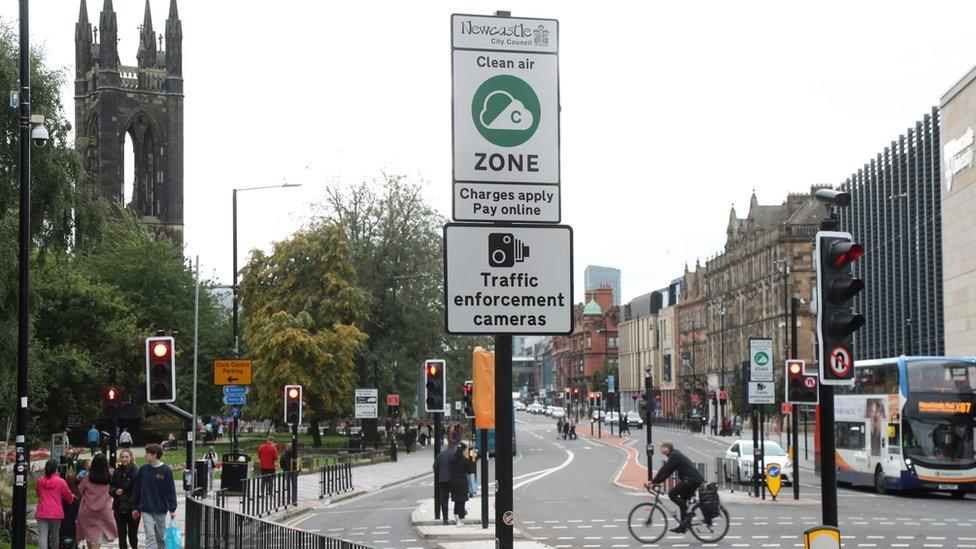
- Published3 October 2022
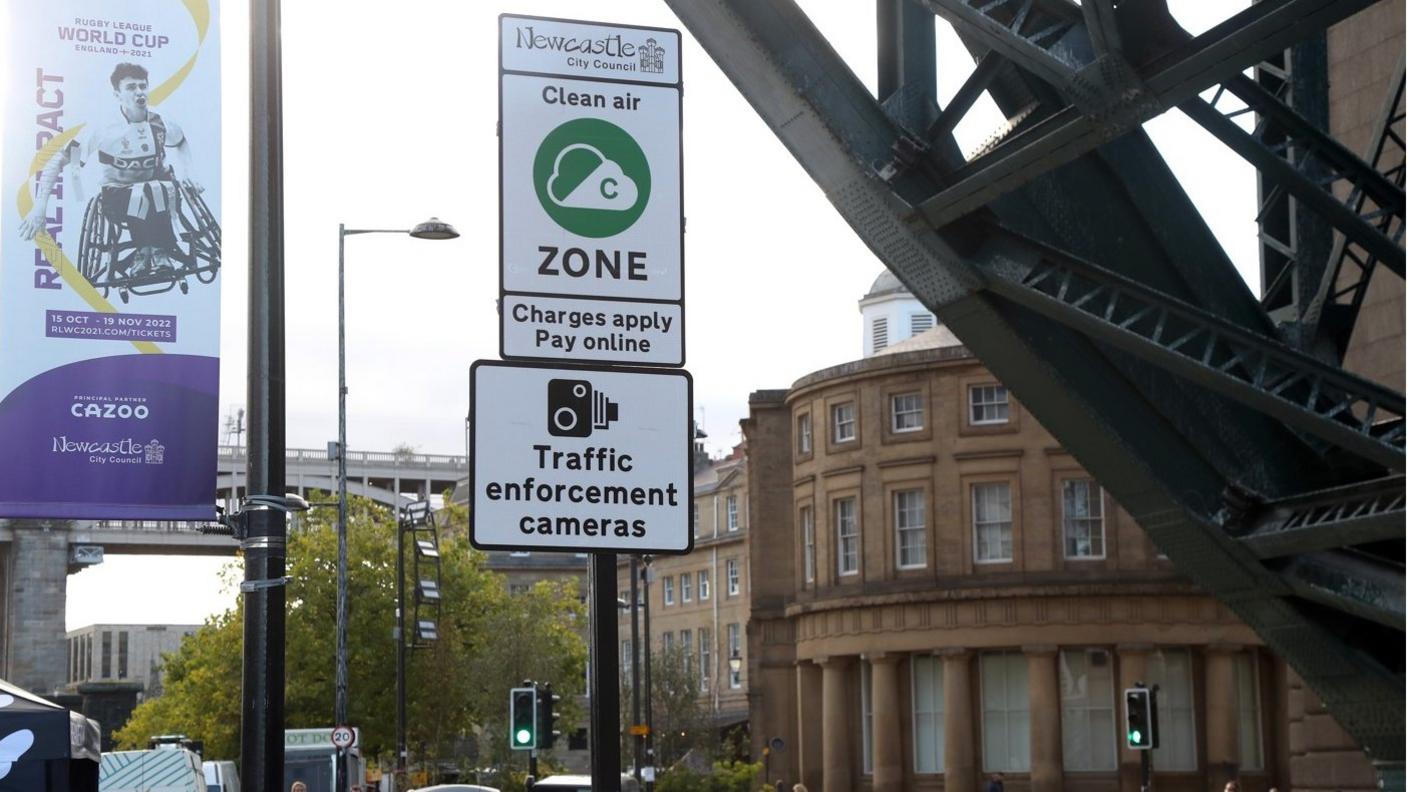
- Published19 July 2022
